How Oasis shaped Militarie Gun, Momma, Dazy and more: “They’re the last great rock and roll band”
- Advertisement -
Liam and Noel Gallagher inspired a generation of songwriters and music fans who were destined for something bigger.
“Oasis are the last great, true, rock and roll band,” Allegra Weingarten, one half of Momma’s primary songwriting duo, says. This is not an overstatement. For a lot of American teenagers who grew up listening to “Supersonic” and “Champagne Supernova,” Oasis served as the perfect rags-to-riches story — a bunch of working-class lads from Manchester who managed to claw their way out with guitars, larger-than-life choruses, and stadium-ready melodies. It is the quintessential fairytale about how rock music can quite literally save you that even resonated with hardcore punks. “I thought I was too punk to like Oasis until it dawned on me that they’re one of the most punk bands of all time,” Hotline TNT bassist Haylen Trammel says. “Maybe not musically, but their attitude. Everything about them is straight-up punk rock.”
In the 15 years between the band’s break-up and their gargantuan reunion shows kicking off in July, a new generation of young Anglophiles have established themselves as some of today’s most exciting guitar bands and taken up the mantle that Oasis left behind. It’s easy to take the power of a great pop hook for granted and even harder to write one. But Oasis’ timeless blueprint of sticky earworm melodies buried in the dissonance of noisy guitars is just one half of the equation: instilling these songs with genuine feeling, and a whole lot of swagger, is the other.
- Advertisement -
Ahead, Wishy, Momma, Hotline TNT, Dazy, Militarie Gun, Smut, Ducks Ltd., and Enumclaw share how Oasis has shaped them not just as songwriters but also music lovers who were told that they, too, could be destined for something bigger.
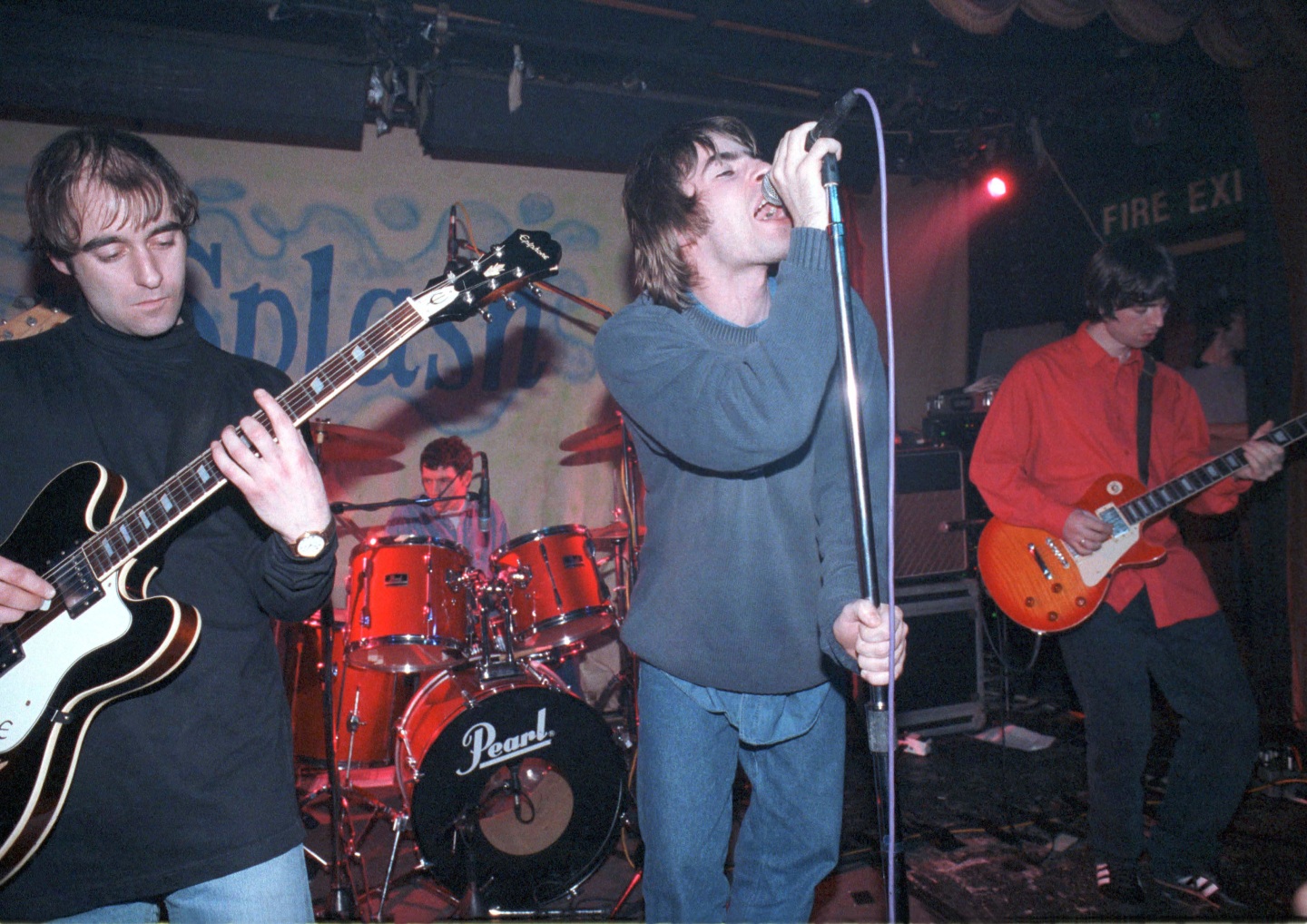
Wishy on the winning simplicity of Oasis songs
Kevin Krauter: [Oasis] were so huge because they marked this return to form of classic simple ingredients. It’s really about having a good time and taking advantage of living life. I fuck with that sentiment. When this band started, I was in a headspace of like, I’ve been making soft, delicate indie music for a long time. And I got bored. I wanted to rock out and make songs with my friends. The thing I was craving was to play loud, fun songs in a small room. Their songs evoke a feeling where you’re not just listening to someone rock out, you’re listening to a song that comes from a place of trying to touch on something.
What initially got me excited to play music was watching music videos of these bands being on tour and having fun, being crazy, but the songs themselves have heart. It’s not just fucking rock and roll. There’s tenderness to it, and a brattiness. That really resonated with me when I was a kid. I’d be like, “I wanna do that when I grow up.”
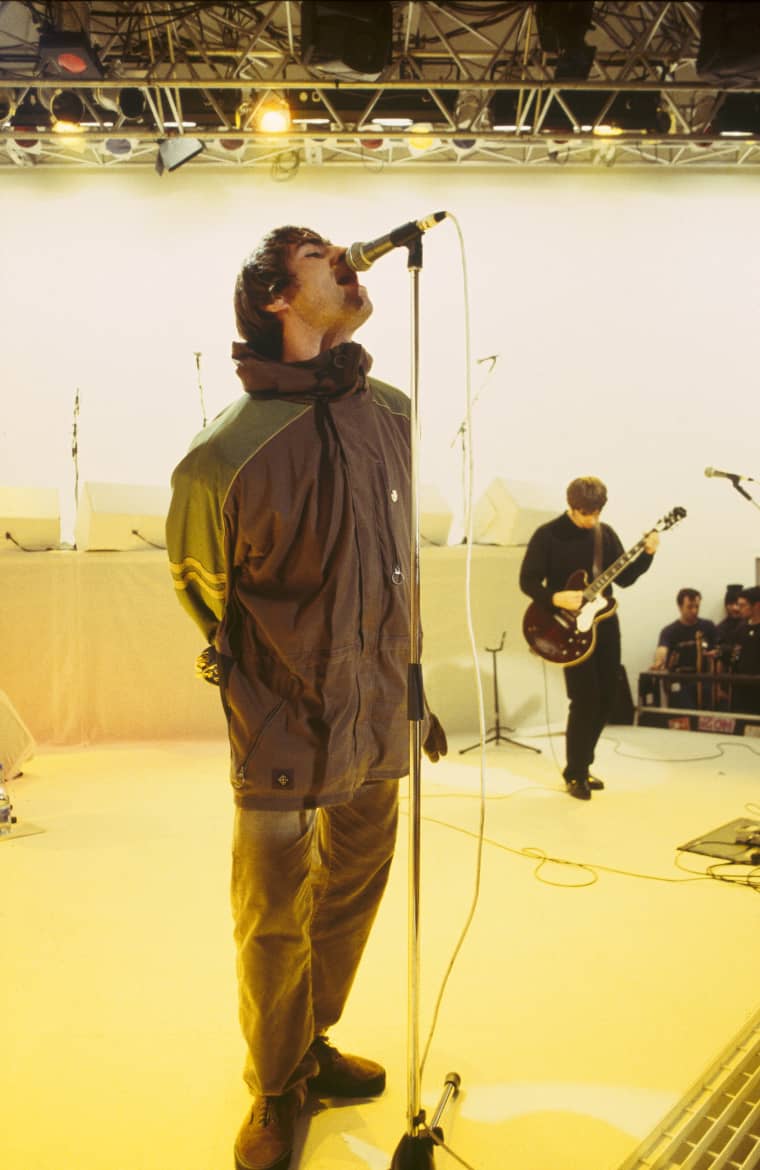
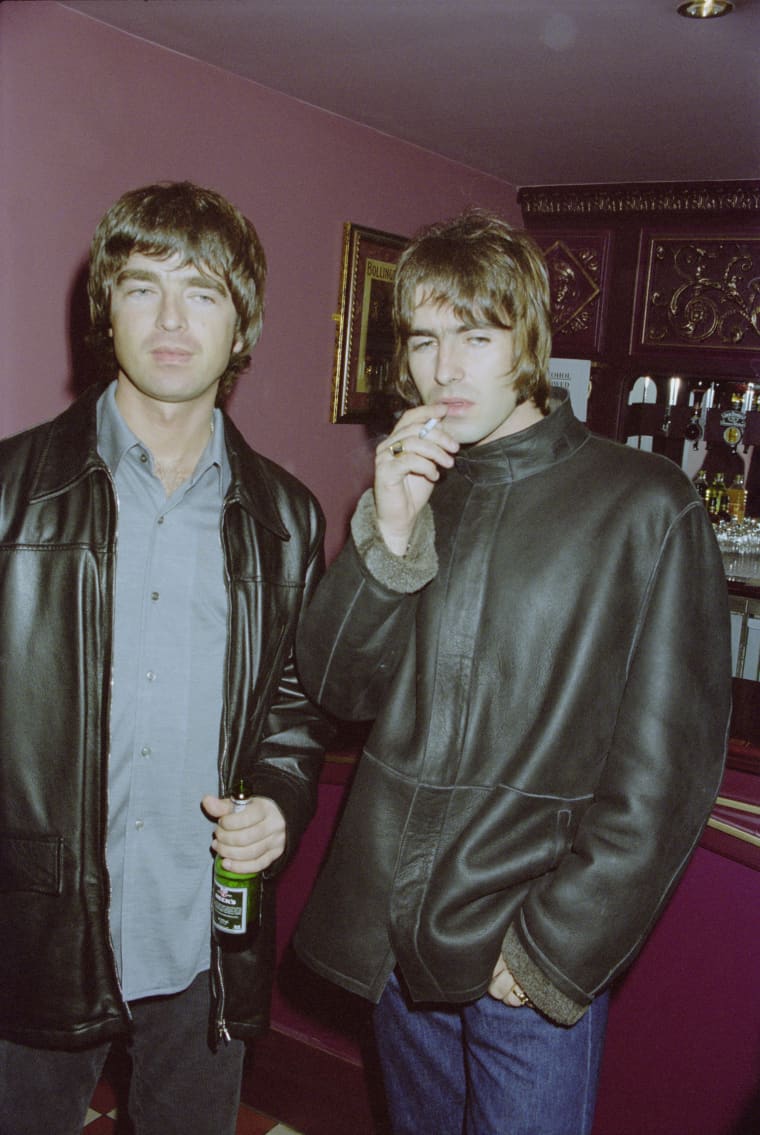
Dazy on Oasis being a gateway to U.K. rock and impactful songwriting
James Goodson: I have this very specific memory of being a kid at my friend’s house and listening to (What’s the Story) Morning Glory, trying to do British accents. The fact that [Oasis] had cool accents and the music was loud, that was good enough.
They were this big entry into music coming from the U.K., and that became really important to me. There’s something so interesting and cool about it being from another country that has a very distinct cultural identity definitely different from America’s. I think for so many people [in our 30s], they were the band that gets you into Creation Records and The Beatles and the Stone Roses, and obviously Britpop and Madchester. Noel Gallagher, in any interview, he’s gonna talk about The Smiths. As a kid, when Noel or Liam talked about those things, it made you perk up and be like, “Alan McGee. This is a guy I need to learn more about.” They’re welcoming you into all that. It was a cheat code to discovering music.
Their music is satisfying and easy to love. Noel Gallagher’s songwriting is very elemental. It’s chord progressions that a lot of bands have used for forever and really good melodies and the vocal melody is so core to what he’s doing. I think he has ticks as a songwriter that he leans into instead of trying to force himself to turn away from. The core of it is Noel’s specific way of writing songs. I think about that a lot with my music. If there’s a good vocal melody, then the paint job around the song can be anything you want it to be.
They are doing what music is supposed to do on a high level. It’s not just about the words or the melody, it’s about the way you combine these things. And when you have a singer like Liam, or Noel, these guys bring something to these words via their voices and their delivery that is intangible. Not to be ridiculously earnest, but that is fucking magic. I was listening to them before I got on this call. I’ve heard these songs a billion times, and every single time I’m like, this band rules. I think they are one of the greatest bands at tapping into the truly spectral shit about music.
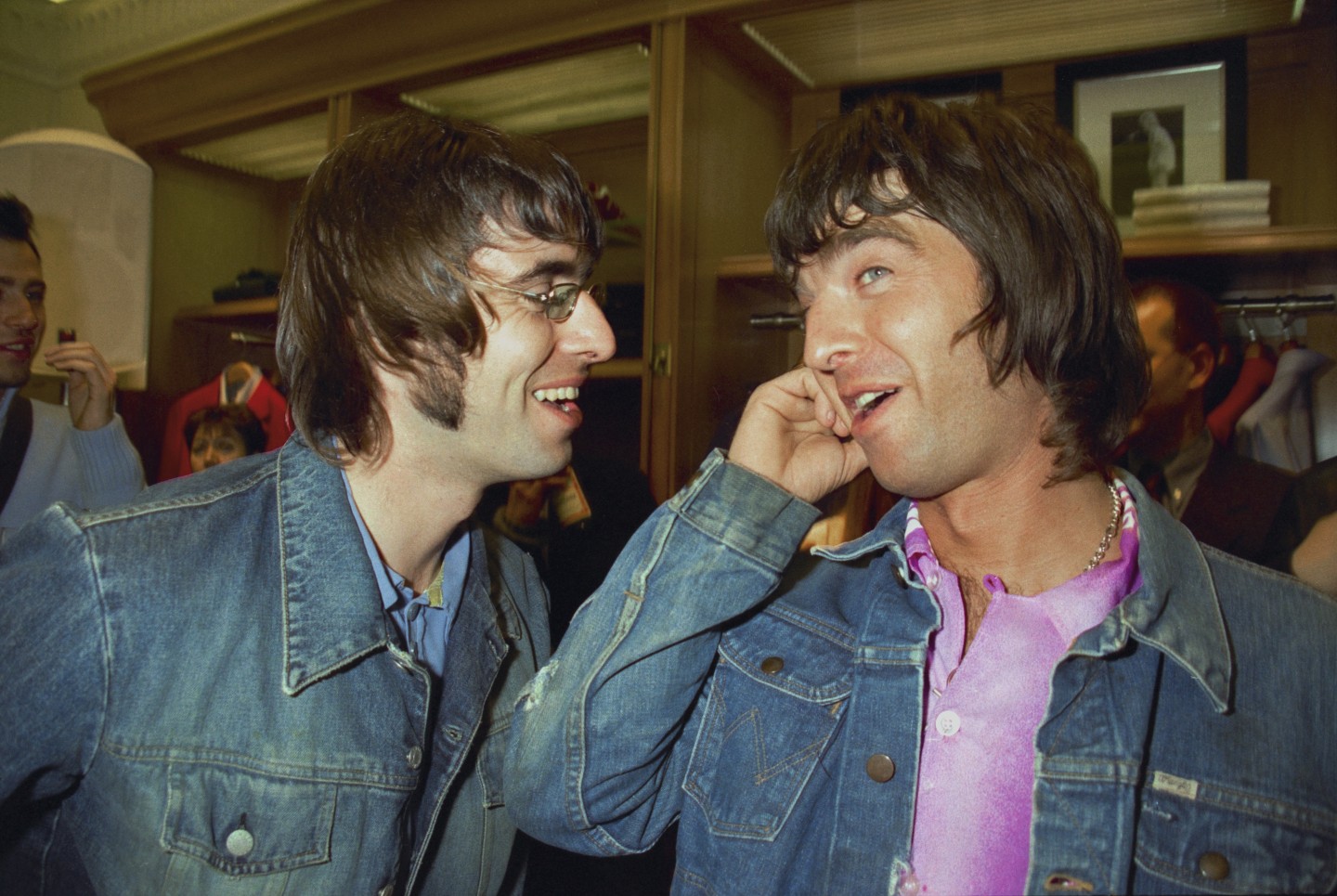 Dave Benett/Getty Images
Dave Benett/Getty Images
Ducks Ltd on how Oasis directly inspired “18 Cigarettes”
Tom McGreevy: Something that directly inspired our song “18 Cigarettes” was this performance of [Oasis] playing “Don’t Go Away” in Manchester in 1997. They’re at the peak of their powers and you can hear a distinctly Mancunian sound of 40,000 people singing every single word back. It’s getting picked up by the mics and it’s this incredible example of what music can be, and what it can do. The devotion is incredible. There’s so many things going on [on “Don’t Go Away”], where the central problem that [Noel] is having is caused by his inability to express his feelings. It’s the idea of writing something both emotionally honest but has that kind of reflexive complexity. There’s a dramatic irony in the suspension that’s so cool.
Militarie Gun on Oasis and what being “cool” means
Ian Shelton: What’s so special about Oasis is that they’re not afraid of being corny. Americans are so concerned with aesthetics and being cool that they’re never actually truly cool. Americans also don’t understand that the goal is to write a massive song. That was Oasis’ goal, to write a massive hit song, and they did.
If there’s anything that is the biggest inspiration for me, it’s that nothing is off the table. Ultimately it’s on my personality and vibe as a human being to be what is cool or whatever. It’s not about censoring yourself or neutering the art to accommodate for this passing fad idea of cool, and that’s why Oasis has stood the test of time. I’m from a shit small town, most famous for a horse sex incident. My first tours that I booked were to get out of the area that I’m from, and the songs are very much a tool for not sinking back into what I’ve come from. I fully relate to Oasis’ idea of music being the key to the way out, and I think that’s something that is very common in hip-hop as well.
I think traditionally hardcore people have gravitated towards alternative rock but we just all shut down because it seemed to be a part of an institution that we were rejecting when we first started liking subculture music. “Morning Glory,” it’s the grit on Liam’s voice, where you’re like, oh, that’s just so aggressive. He just sounds so awesome and it has the bravado and the swagger. “Cigarettes & Alcohol” could be a Sex Pistols song. It starts to click as you’re going, this isn’t a huge difference to hardcore.
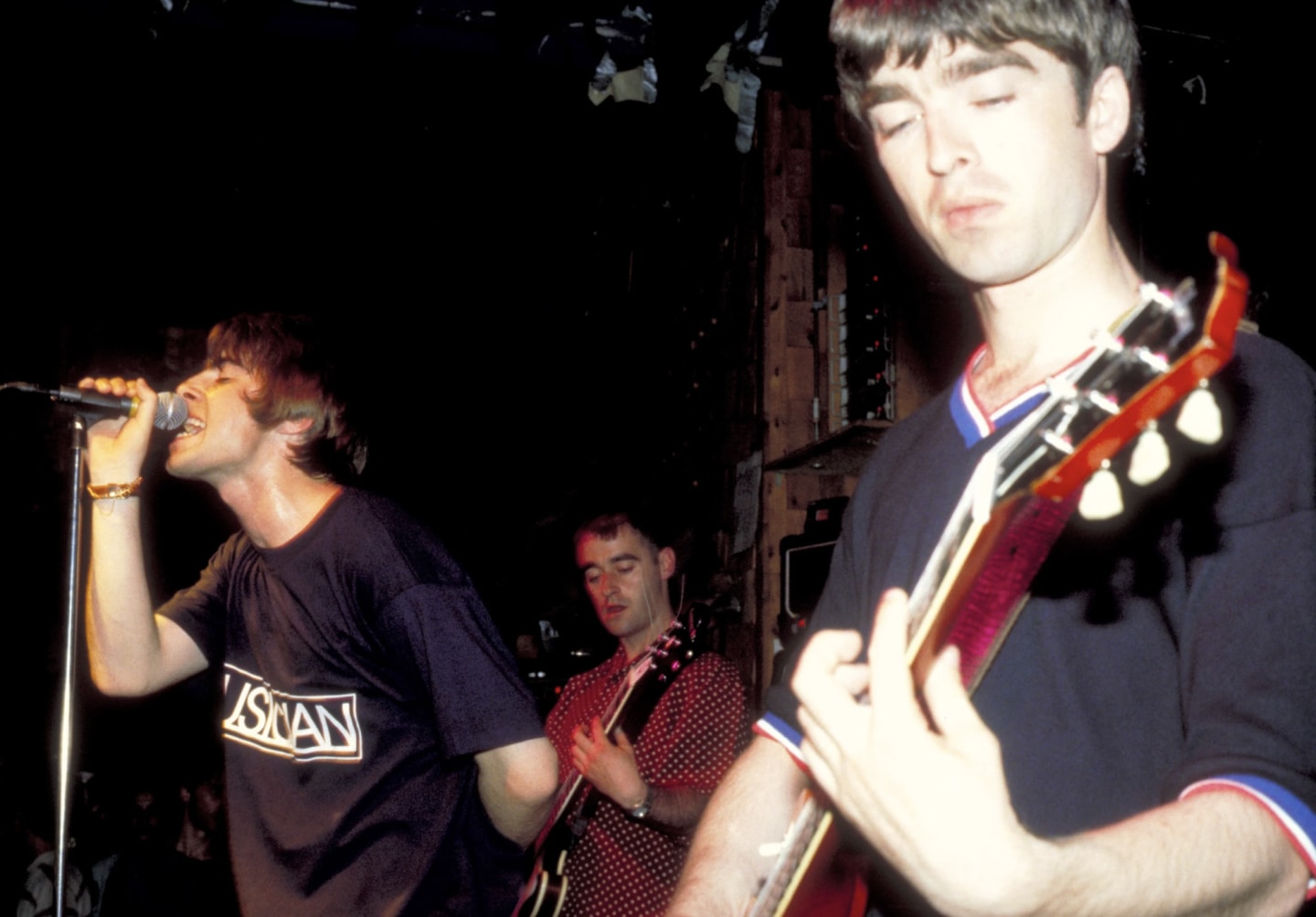
Momma on embracing Oasis’ pop
Etta Friedman: I heard Oasis every day on the radio growing up. [Momma has] been having this conversation about the genre surrounding pop music, and the music that we make. I think pop gets cornered into this category of only Top 40 music, which I’m guilty of thinking of as well. To me, pop is something that’s just gonna get in your ear. It’s an earworm. These days, I feel like people overcomplicate things a lot, because a pop song can literally exist within three chords.
Aron Kobayashi Ritch: I think the hard thing about pop music is making it not cringe, and that’s equally as hard as writing the pop hook, then selling it. Oasis do that really well.
Allegra Weingarten: Our generation has really embraced them as great songwriters. There’s something to be said about how their music brings people together. Everyone always wants to like the coolest thing or the most niche thing in the world, but I think the most special type of art you could make is something that bridges the gap between multiple demographics. There’s no shame in liking something that’s popular. You are just relating to other people and that’s the spirit of music.
Hotline TNT on loving Oasis as a hardcore fan
Haylen Trammel: I didn’t like Oasis right away when I was younger. I didn’t have a desire to willingly listen to them until I was well out of my teens. I had found this D.I.Y. hardcore and punk world, and, for the longest time, I was like, “this is all I want people to know that I listen to.” Fast forward, Oasis is becoming very popular in the hardcore world. It was genuine and for the right reason. For a while, I was like, why is Oasis so popular in the hardcore scene? But around 2015, 2016, I gave in. I went into a Half Price Books and I bought a whole slew of CDs. I was already into Stone Roses, so through the Britpop connection, I bought CDs by Inspiral Carpets, Happy Mondays, Charlatans. I got (What’s the Story) Morning Glory and Definitely Maybe. I think those two CDs stayed on rotation in my car until I sold it. I had to humble myself and stop being too cool for Oasis.
Smut on the emotion of Oasis’ big, anthemic songs
Tay Roebuck: Emotions and sincerity is a strange commodity that doesn’t exist in music as much these days. During the ’90s, Britpop was very emotionally attuned, and I feel like American music, Nirvana and Pavement, Sonic Youth… it was like, we’re not trying to be cool, but we’re cool. When you’re a teenage girl or a young person, it’s a little harder to connect to. Because how could you not be feeling everything right now? There’s a catharsis that comes with listening to big, anthemic, emotional music like “Champagne Supernova” or “Talk Tonight.”
At least for our band every song is inspired by a very strong emotion. I’m a huge lyric head. But I know that I can write something that I’m super proud of, and in order for people to understand it, I need to make it catchy. I could just be saying the words and hoping for the connection, but the words are connected to emotions. Why wouldn’t I want the melody, that emotion, to carry the point home?
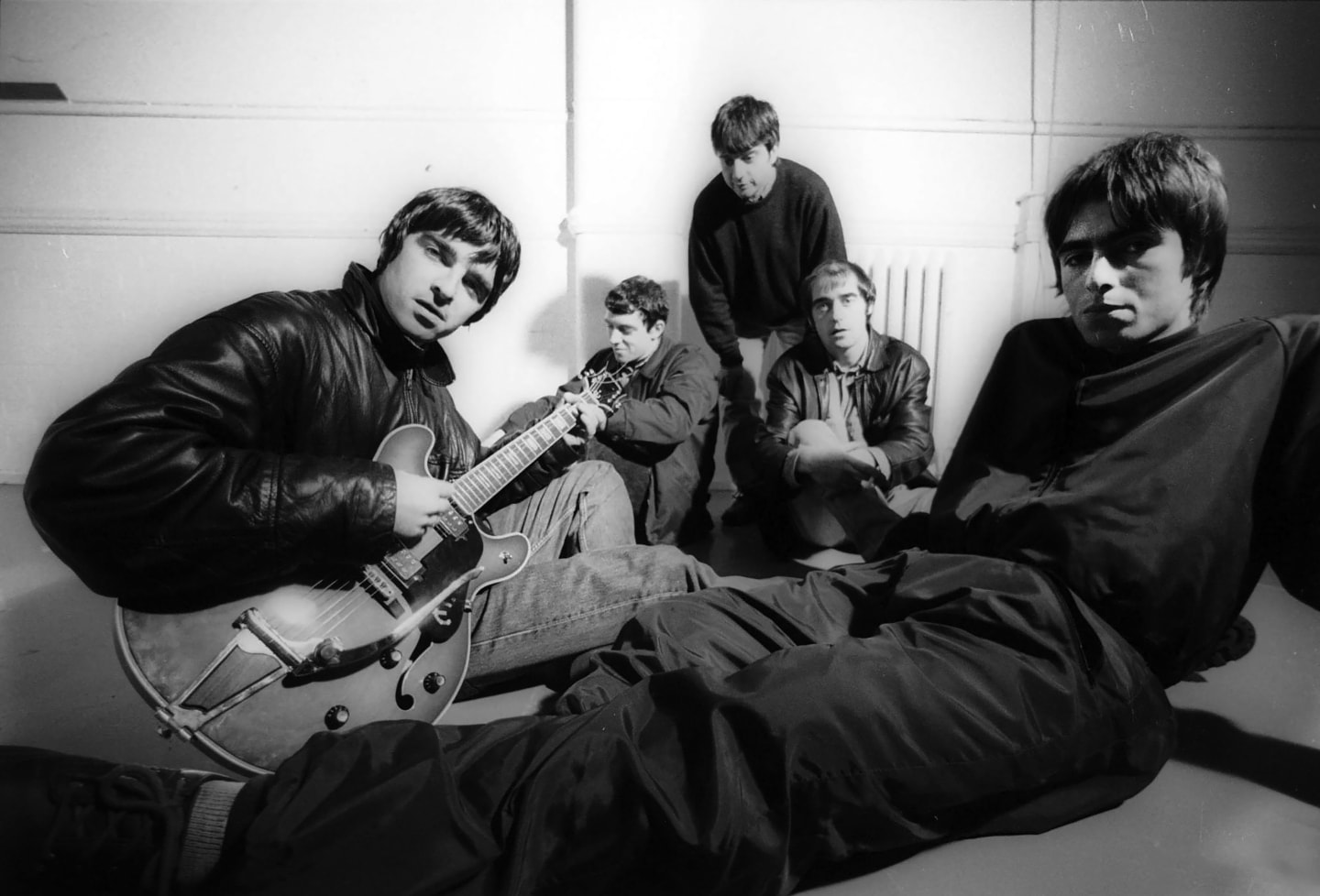 By James Fry/Getty Images
By James Fry/Getty Images
Enumclaw on how Oasis helped them dream bigger
Aramis Johnson: A big entry point for me with Oasis was that I used to work at this warehouse towards the end of college called FAST. It was a shitty manual labor job and I used to listen to Definitely, Maybe. On “Supersonic,” when Liam goes, “I need to be myself, I can’t be no one else”… When you write it down and say it out loud it sounds stupid, but the way he sings it makes you be like, damn. This is an absolute truth.
In modern American culture, the rags to riches story outside of rap music doesn’t exist. In my own rock and roll timeline, Oasis were the last working-class band that hit this newfound stratosphere. You have these lads who were fucking pouring concrete or whatever before they blew up. So much of their lore and what they say in the press is their bad boy image. But you listen to the music, it’s centered on yearning, or feeling small and wanting to feel big. Things anybody can relate to.
The timing of when I got into them, working at that warehouse, is no coincidence because, man, I really wanted my life to change. I think their thing in those first few albums and why their run was so short is because it’s like, what do you write about once you escape the thing you’re running from? All the songs at the beginning are about wanting to be seen and to get to where you’re going and do the impossible.
The hook is this moment where the clouds part and the sun comes out. My goal is to always make that part of the song feel like that. I think the hardest thing to do when you write a song is to make it be about nothing but to feel like it’s about everything. Like, what the fuck is “Champagne Supernova”? But for those eight minutes, I know exactly what he’s talking about. There’s this transcendent feeling. “Walking faster than a cannonball.” It’s gibberish but it makes sense. The way it moves, it’s its own world.
- Advertisement -
